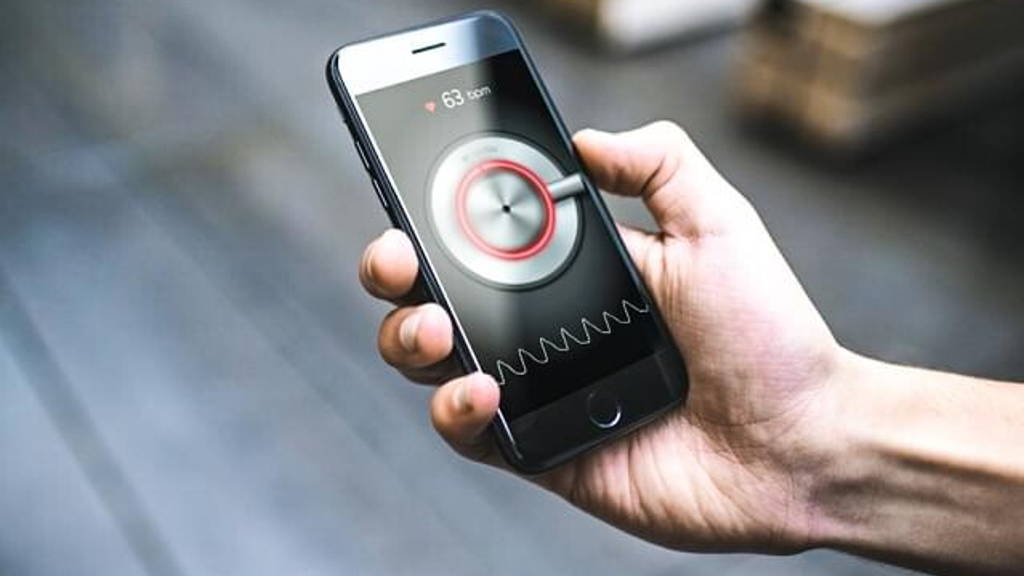Cardiio is the startup behind a fitness app of the same name, launched in 2012, that calculates heart rate based off facial light reflection. It works because each heartbeat increases the volume of blood in the user’s vessels. Blood’s hemoglobin absorbs light, which decreases the light reflected by the skin. The Cardiio app tracks those tiny changes in reflected light, not visible to the human eye, to accurately calculate a heartbeat.
Detecting irregular heartbeat patterns
Recently, the startup has started using that light-reflection data to make a new app that can detect irregular heartbeat patterns of atrial fibrillation (AF), a common type of heart arrhythmia that can lead to strokes, MIT News writes. Called Cardiio Rhythm, the clinical app is currently being used for research only and has been validated by several academic papers. In the near future, Cardiio hopes to make the app available to consumers for early heart-arrhythmia screening.
Cardiio aims at developing algorithms that unlock clinical insights from biometric and other data collected from commonly available devices such as smartphones and wearables. Cardiio co-founder and CEO Ming-Zher Poh PhD ’11 ( a former Media Lab research affiliate who co-developed the app) hopes the app will enable people to learn more about their health and take more control of their health.
Cardiio Rhythm would be intended only as an early screening tool for AF, to be used, for example, by older individuals who are more susceptible to the condition. Official diagnosis of any heart arrhythmia would still need to come from a health care professional.
AF growing problem
According to the Centers for Disease Control and Prevention (CDC), some 2.7 million to 6 million people in the United States alone suffer from AF, which happens when the beating in the heart’s upper chambers is irregular, so blood doesn’t flow well to the lower chambers. This can cause blood clots, which can travel to the brain and cause a stroke. It’s also a growing problem with a naging population.
Annually, AF causes about 750,000 hospitalizations and an estimated 130,000 deaths. The condition also contributes to about 15 to 20 percent of ischemic strokes, the strokes caused by blood clots in the brain. If diagnosed early, around two-thirds of AF-related strokes can be prevented through medication, Poh says. But because the condition often produces vague or no symptoms, it sometimes goes undetected.
Moreover, a type of AF called paroxysmal AF causes spontaneous irregular heartbeats that may go undiagnosed. The standard AF-detection device, an electrocardiogram (ECG), involves attaching electrodes to a patient’s chest to measure the electrical impulse of a heartbeat and detect irregularities.
“But there’s a chance the electrocardiogram won’t pick up [AF] if your heart rhythm is not irregular during a routine checkup at a clinic,” Poh says. “Sometimes people don’t discover they have this irregular heart rhythm until after they suffer a stroke.”
Detecting irregular heartbeat
Here Cardiio Rhythm comes in. It can detect irregular heartbeats by focusing the smartphone camera on someone’s face or by having them place a finger on the camera. When the person’s heart beats, the app captures the blood volume data in pulse waveforms. Machine learning algorithms analyze those waveforms to detect signature pulse patterns of AF. “We’re not trying to replace the ECG, but help people take early action,” Poh says.
Earlier study
In a 2016 study presented at the American Heart Association’s Scientific Sessions led by Bryan Yan, an associate professor at The Chinese University of Hong Kong, Cardiio Rhythm was used to screen 85 hospital patients for AF against an ECG, by having them face an iPhone camera immediately following an ECG reading. The app was 95 percent as accurate as the ECG in detecting AF. A larger study led by Chung-Wah Siu, a cardiology professor of the University of Hong Kong, used the app to screen 1,013 patients at risk of developing AF, with similar results reported in the Journal of the American Heart Association.
With Cardiio Rhythm on the rise, Poh says his startup hopes to serve as a type of intermediate for consumers, between widely available fitness apps and traditional medical devices that screen for disease, which are expensive and often require prescriptions to use.
“On one hand, you have smartphone-based health apps, or smart watches, or fitness trackers that generate a lot of biometric data but offer somewhat limited insights. On the other hand, traditional FDA-cleared medical devices can aid physicians in diagnosis but are not as easily accessible to consumers,” Poh says. “There needs to be a transition from fitness-oriented devices to more medical applications in order to improve health outcomes. We see ourselves providing the tools to make that transition possible."







